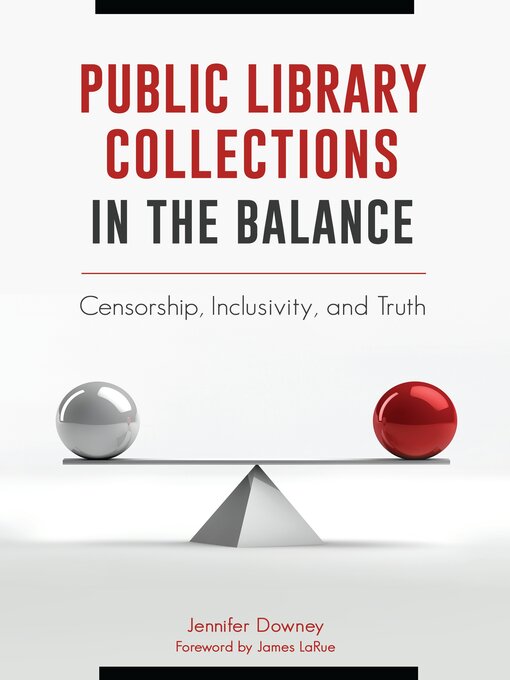- Popular ebook fiction
- Truth and Reconciliation in Canada
- MMIWG
- Mental Health
- Canadian Indigenous Voices
- February Romance 2024
- Canada Reads 2024 longlist
- Black History Month 2024
- Freedom to Read Week 2024
- February - I love to read month
- See all
-
Description
-
Creators
-
Details
-
Reviews
This book addresses contemporary issues in censorship and intellectual freedom and can serve as an invaluable resource for librarians and other library staff and as an eye-opening read for MLIS students. It covers the waterfront of intricate and thorny issues regarding intellectual freedom, including determining strategies for patron privacy, deciding how to filter public computers, handling challenges to items in a collection, and recognizing and eliminating under-the-radar self-censorship during collection development and weeding. Readers will also gain an understanding of the perils of over-reliance on community assessments and other evaluative tools and consider important concerns of public library employees, such as whether to restrict borrowing privileges of R-rated movies and M-rated video games to patrons of various ages, and the legalities that surround these questions.
Each chapter blends instructive background narrative with practical advice, research findings, and relevant information about librarianship's professional guidelines, including the ALA's Library Bill of Rights and the Freedom to Read Statement. Vignettes, "what would you do?" examples, effective nonconfrontational techniques for conflict resolution, and lists of tips and traps help readers to think critically about their own biases and rehearse possible responses to controversial situations. Librarians, library staff, and MLIS students can use this book for personal professional development, as supplemental reading for MLIS courses or professional training workshops, or as a resource for library policy-planning discussions.

- Jennifer Downey - Author
- James LaRue - Author of introduction, etc.
OverDrive Read
- ISBN: 9798216134183
- File size: 2013 KB
- Release date: July 25, 2017
EPUB ebook
- ISBN: 9798216134183
- File size: 2013 KB
- Release date: July 25, 2017

Loading
